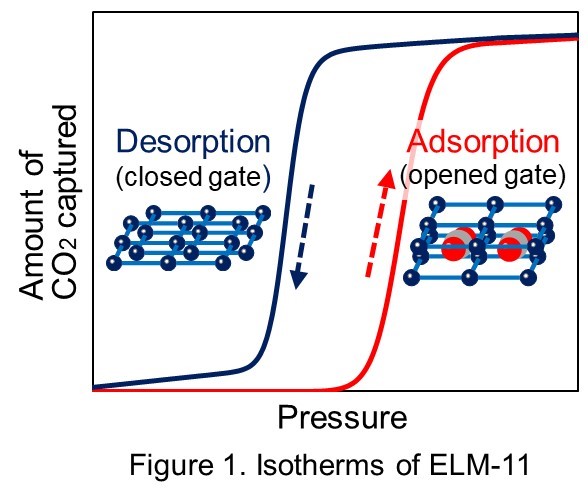2020 Virtual AIChE Annual Meeting
(408h) Modeling Hysteretic Isotherms and Parameter Estimation for Pressure Swing Adsorption Process Using Gate-Opening Metal-Organic Frameworks
Authors
PSA process using ELM-11 has not been investigated in the past partly because of the difficulty of modeling the complex hysteresis of the isotherms due to the âgate adsorptionâ mechanism; the structure of ELM-11 changes as CO2 molecules are captured in the framework. Figure 1 shows isotherms of ELM-11. By increasing the partial pressure of CO2 from the state without CO2 molecules in the framework, the space between layers of ELM-11 opens (gate opening) and the CO2 molecules are captured in the space. This mechanism is reversed in desorption; when the partial pressure of CO2 around ELM-11 is decreased, the captured CO2 molecules are released, which leads to the closure of the space between the layers (gate closing). Note that there is a gap between the two trajectories of the adsorption and desorption isotherms.
In this research, we model the isotherms and estimate the parameters in the model from experimental data. We employ the Markov chain Monte Carlo (MCMC) method, a sampling algorithm for solving Bayesian estimation. This approach provides not only the estimate of parameter values but also the uncertainty in the estimates as probability distributions. The isotherm with the obtained parameters, which is a hybrid model, is incorporated into a PSA model to estimate the process performance.
Reference
[1] Tanaka, H. et al, 2015. J. Phys. Chem. C 119, 11533â11543.
